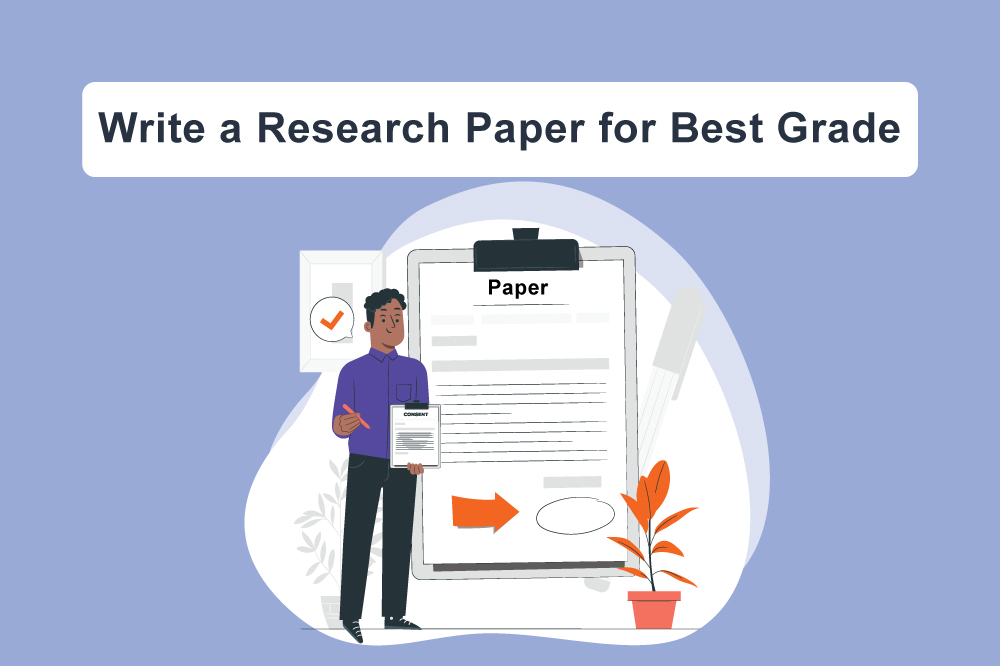Which of the following skills is most important in learning how to write a research paper? This question stands at the forefront of every aspiring researcher’s journey into the realm of academia. As the cornerstone of scholarly discourse, research papers demand a multifaceted approach, requiring a diverse array of skills to navigate the complexities of academic inquiry. In this introduction, we delve into the pivotal role of skill development in crafting compelling research papers and explore the significance of honing specific abilities to excel in this endeavor. , which one stands out as the most important? Let’s explore the different skills involved in research paper writing to find out.
Critical Thinking
Critical thinking is the foundation of any research paper. It involves analyzing information, questioning assumptions, and forming reasoned judgments. Without critical thinking skills, researchers may struggle to identify relevant sources, evaluate evidence, or draw meaningful conclusions. For instance, when reviewing literature for a paper, critical thinkers can discern between reliable studies and biased opinions, ensuring the credibility of their research.
Strategies for Enhancing Critical Thinking
Engage in Reflective Practice
Take time to reflect on your research process, identifying strengths and areas for improvement. Reflective practice fosters self-awareness and encourages continuous growth.
Embrace Intellectual Curiosity
Cultivate a thirst for knowledge and exploration. Stay curious about diverse topics and perspectives, seeking to broaden your understanding and challenge assumptions.
Utilize Socratic Questioning
Adopt the Socratic method to delve deeper into research questions. By asking probing questions, researchers can uncover underlying assumptions and stimulate critical inquiry.
Promote Collaborative Learning
Engage in discussions and collaborative projects to exchange ideas and insights with peers. Collaborative learning environments foster intellectual growth and encourage critical thinking through constructive feedback.
Research Skills
Research skills are essential for gathering relevant information and supporting arguments in a research paper. Researchers must know how to navigate databases, search for scholarly articles, and cite sources properly. Moreover, the ability to assess the quality and reliability of sources is crucial for maintaining the integrity of the paper. Effective research skills enable writers to delve deep into a topic, uncovering valuable insights and evidence to strengthen their arguments. Let’s explore the different research skills below
Understanding the Assignment
Before you begin your research, make sure you thoroughly understand the assignment requirements. Clarify any uncertainties with your instructor regarding the topic, length, formatting, and citation style.
Choosing a Topic
Select a topic that interests you and is relevant to the assignment. Ensure that it is neither too broad nor too narrow. If the topic is too broad, you may struggle to cover it adequately. If it’s too narrow, you may find insufficient research material.
Conducting Preliminary Research
Start with general sources such as textbooks, encyclopedias, or online databases to gain a basic understanding of your topic. This will help you identify key concepts, terminology, and potential research questions.
Developing Research Questions
Based on your preliminary research, formulate specific research questions that will guide your investigation. These questions should be clear, focused, and capable of being answered through research.
Identifying Keywords
Brainstorm keywords and phrases related to your research questions. These keywords will be essential for conducting efficient searches in databases and libraries.
Using Library Resources
Utilize both online and physical library resources such as books, academic journals, databases, and archival materials. Librarians can provide assistance in navigating these resources effectively.
Evaluating Sources
Critically evaluate the credibility, relevance, and reliability of the sources you find. Consider the author’s credentials, publication date, peer-review status (for academic articles), and potential biases.
Taking Notes
Keep detailed notes of the information you gather, including bibliographic information for each source. Organize your notes according to the research questions they address to facilitate later writing.
Writing Skills
Writing skills are the medium through which research findings are communicated to the audience. A well-written paper presents ideas clearly, concisely, and persuasively. This involves structuring the paper logically, organizing information coherently, and using appropriate language and tone. Strong writing skills enable researchers to convey complex ideas in a manner that is accessible to readers, enhancing the impact and readability of their paper.
Analytical Skills
Analytical skills are crucial for interpreting data, identifying patterns, and drawing meaningful conclusions in a research paper. Researchers must be able to analyze empirical findings, evaluate their significance, and interpret their implications for the broader field of study. By applying analytical skills, researchers can uncover new insights, challenge existing theories, and contribute to the advancement of knowledge in their respective disciplines.
Communication Skills
Communication skills are vital for effectively conveying research findings to various audiences, including peers, instructors, and the general public. Researchers must be able to present their ideas clearly, engage their audience, and respond to questions and feedback thoughtfully. Strong communication skills enable researchers to disseminate their findings widely, fostering collaboration, dialogue, and intellectual exchange within their academic community.
Time Management
Time management is essential for meeting deadlines, staying organized, and completing a research paper efficiently. Researchers must allocate sufficient time for each stage of the writing process, from conducting research to revising and editing the final draft. Effective time management ensures that researchers can balance their academic responsibilities effectively, avoiding last-minute rushes and producing high-quality work consistently.
Adaptability
Adaptability is the ability to respond flexibly to new challenges, feedback, and information during the research process. Researchers must be open to revising their hypotheses, adjusting their methodologies, and refining their arguments based on new evidence or insights. By embracing adaptability, researchers can refine their ideas, address potential limitations, and produce research papers that are rigorous, nuanced, and responsive to the evolving needs of their field.
Citation and Referencing
Citing sources accurately is essential to avoid plagiarism and give credit to the original authors. Writers must familiarize themselves with various citation styles such as APA, MLA, or Chicago and apply them consistently throughout their paper. Proper referencing underscores the integrity of the research and strengthens its validity.
Persistence
Persistence is the hallmark of successful research paper writing. Rejection, criticism, and setbacks are inevitable, but resilient writers persevere in the face of adversity. Cultivating a resilient attitude enables researchers to weather challenges and persist in their pursuit of scholarly excellence.
Self-Reflection
Self-reflection is integral to continuous improvement. Writers should critically evaluate their strengths and weaknesses, solicit feedback from peers, and identify areas for growth. By embracing a reflective practice, researchers can refine their skills and elevate the caliber of their future work.
Collaboration
Collaboration fosters innovation and enriches the research process. Seeking input from peers, mentors, or subject matter experts can provide valuable insights and perspectives that enhance the quality of the paper. Constructive feedback helps writers refine their arguments and strengthen their academic contributions.
Problem-Solving Skills
Research paper writing often presents challenges that require creative problem-solving. Whether grappling with methodological limitations, data discrepancies, or theoretical ambiguities, writers must approach obstacles with a solution-oriented mindset. Effective problem-solving distinguishes adept researchers from novices.
Conclusion
In conclusion, writing a research paper requires a diverse range of skills, each of which plays a crucial role in the research process. While all the skills discussed—critical thinking, research skills, writing skills, analytical skills, communication skills, time management, and adaptability—are important, one skill stands out as particularly essential: critical thinking. Critical thinking underpins the entire research process, guiding researchers in formulating hypotheses, evaluating evidence, and drawing meaningful conclusions. Without critical thinking skills, researchers may struggle to navigate the complexities of their field or produce research papers that contribute meaningfully to scholarly discourse.
FAQs
Are there any shortcuts to improving critical thinking skills?
While there are no shortcuts, engaging in activities such as reading widely, solving puzzles, and engaging in debates can help sharpen critical thinking abilities over time.
How can I improve my research skills?
Practice conducting literature reviews, familiarize yourself with academic databases and seek guidance from librarians or research mentors for effective research strategies.
What are some strategies for enhancing writing skills?
Practice writing regularly, seek feedback from peers or instructors, and study exemplary research papers to learn from their structure, style, and argumentation.
How can I develop better time management habits?
Use tools such as calendars or to-do lists to plan your time effectively, break larger tasks into smaller manageable chunks, and prioritize tasks based on their importance and deadlines.
Why is adaptability important in research paper writing?
Adaptability enables researchers to respond to unexpected challenges, refine their hypotheses based on new evidence, and ensure that their research remains relevant and rigorous in the face of changing circumstances.





